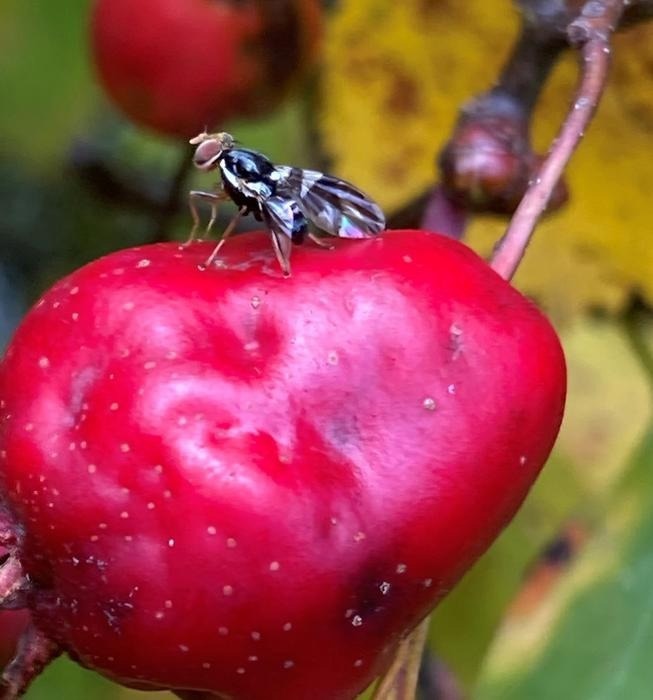The evolution of new species is ongoing on a global scale as various biological groups split off and pursue diverse trajectories. What occurs when climate change is included in the equation?
 Apple maggot fly. Image Credit: Thomas H.Q. Powell
Apple maggot fly. Image Credit: Thomas H.Q. Powell
In their latest Ecology Letters article, “Contrasting effects of warming in diverging insects,” Thomas H.Q. Powell, assistant professor of biological sciences at Binghamton University, State University of New York, and his team attempt to provide an answer to this dilemma.
A significant agricultural pest, the apple maggot fly, started to split into two populations in the Hudson Valley in the 1850s. One continued to exist on the hawthorn tree fruit that was indigenous to the area. The other changed their diet to include apple trees, which English colonists had first brought to North America.
The entomologist who discovered this actually corresponded with Darwin about it potentially being an example of the origin of species in real time. It wasn’t until the system was picked back up by researchers in the late 20th century that we found out he was right.
Thomas H.Q. Powell, Assistant Professor, Biological Sciences, Binghamton University, State University of New York
Hawthorns bear fruit three to four weeks later than apples, changing the reproductive cycles of the two populations. This, in turn, affects a number of parasitic wasp species that eat the maggot fly, illustrating the delicate balance that supports ecosystems.
For their experiment, the researchers raised populations of parasitic wasps and apple- and hawthorn-based flies in environments that matched the seasonal average from the previous 10 years’ worth of climate data and then in warmer environments predicted for the next 50 to 100 years. Powell notes that the findings have significant implications for insect biodiversity.
The two fly populations reacted to that temperature change in very different ways, although in the same place. The hawthorn residents looked to be more resilient, possibly as a result of greater genetic variation.
The apple flies’ life cycle was thrown out of sync with that of their host plant, making it difficult for them to survive and possibly putting a stop to speciation.
However, parasitic wasps’ life cycles were unaffected by the heat, which could have disastrous effects if they diverged from the lifecycle of their prey.
Long-term, natural adaptation could be able to help disrupted systems regain some balance, but rapid evolution is severely constrained. Habitats are frequently smaller and more fragmented, which limits the genetic diversity that organisms require to adapt to changing environmental stressors.
Powell concluded, “It is not just that climate change is disrupting evolution through the potential breakdown of this classic speciation story, but that the rapid evolution of the flies has a strong bearing on how susceptible they are to climate change. So, if we are finding that the effects of these future conditions may be completely different, even for identical flies from the same habitat that have been evolving since just the 1800s, we may see widespread chaos in the ecological timing of insect communities in the coming decades.”
Journal Reference:
Lackey, A. C. R., et al. (2023) Simulated climate warming causes asymmetric responses in insect life history timing potentially disrupting a classic ecological speciation system. Ecology Letters. doi:10.1111/ele.14268.